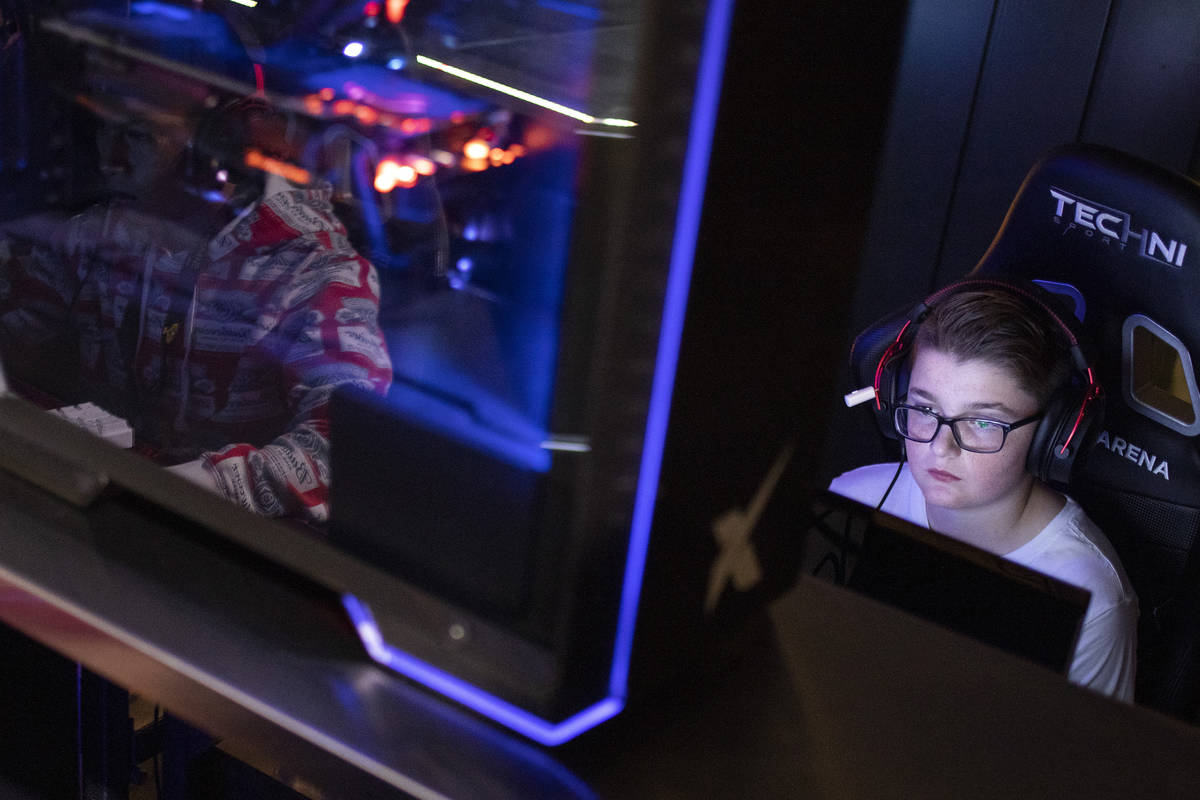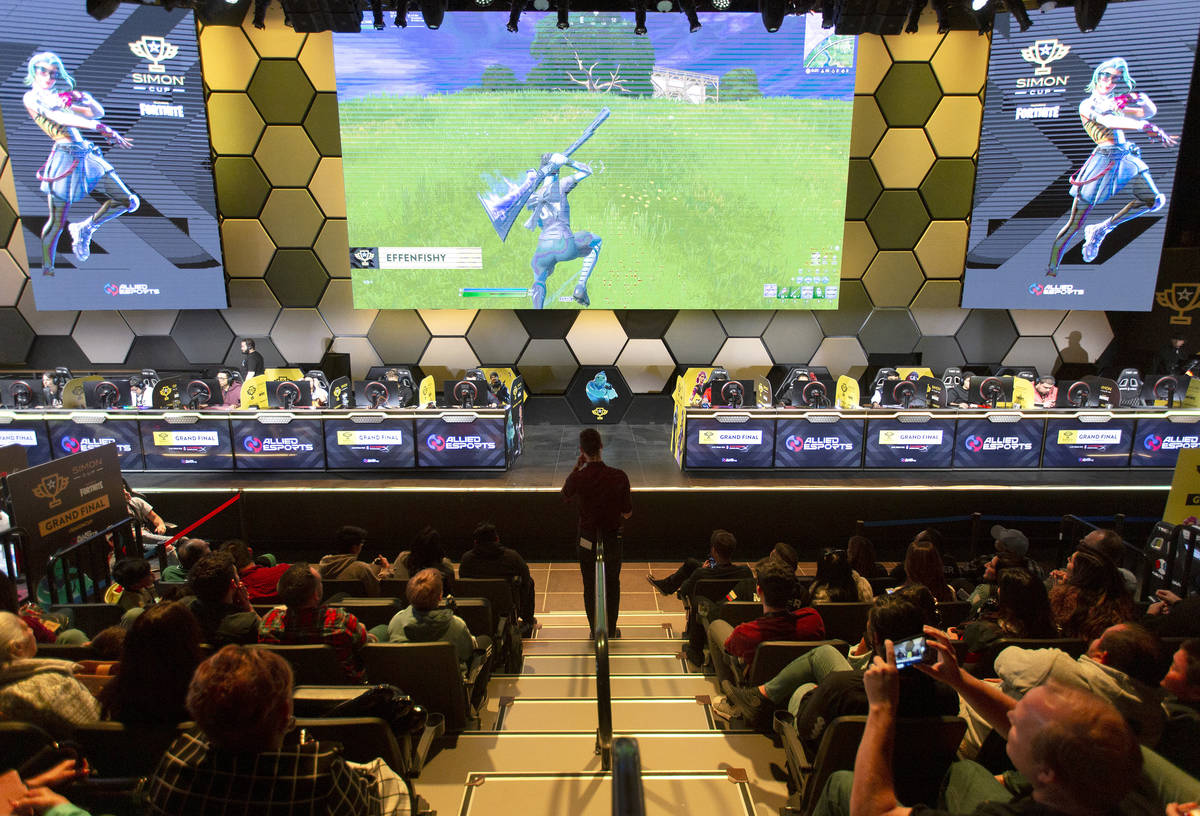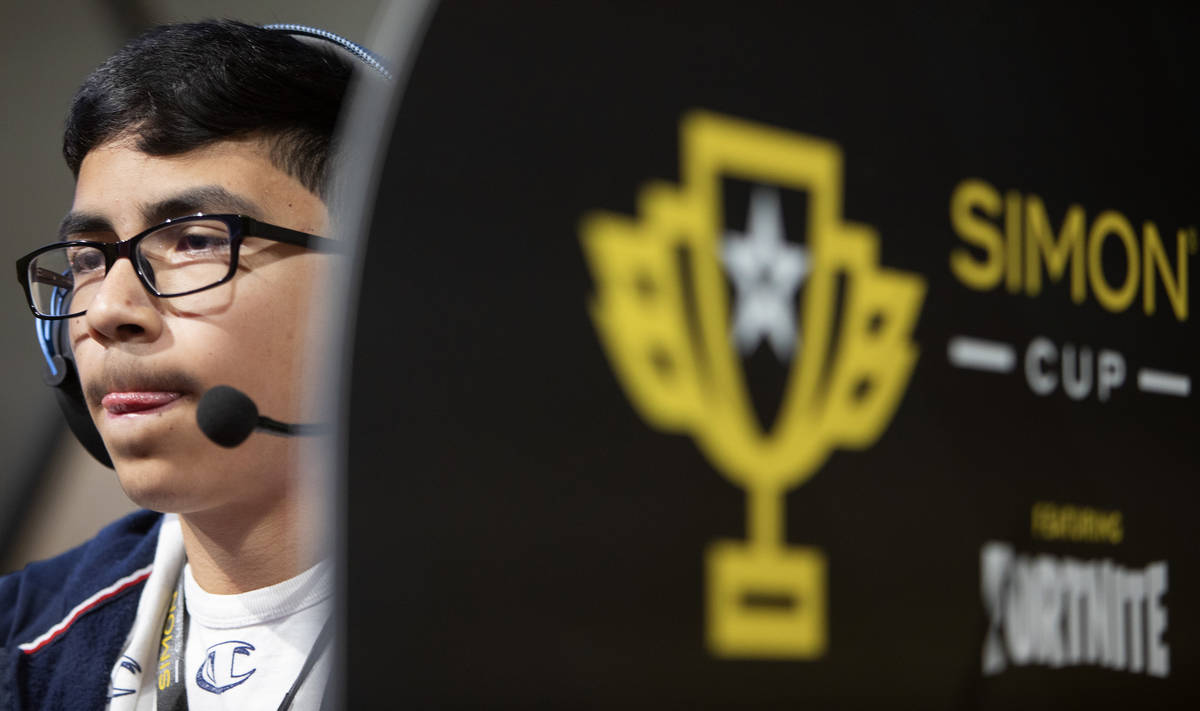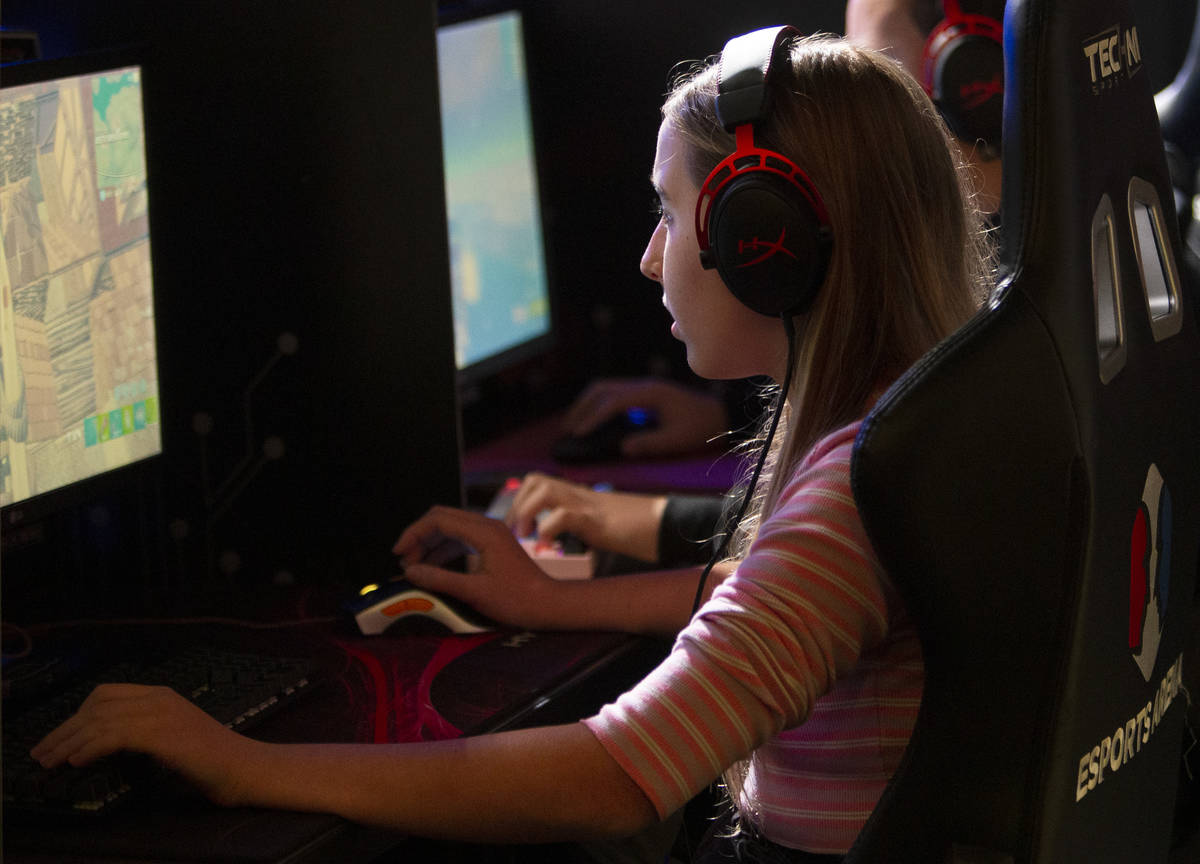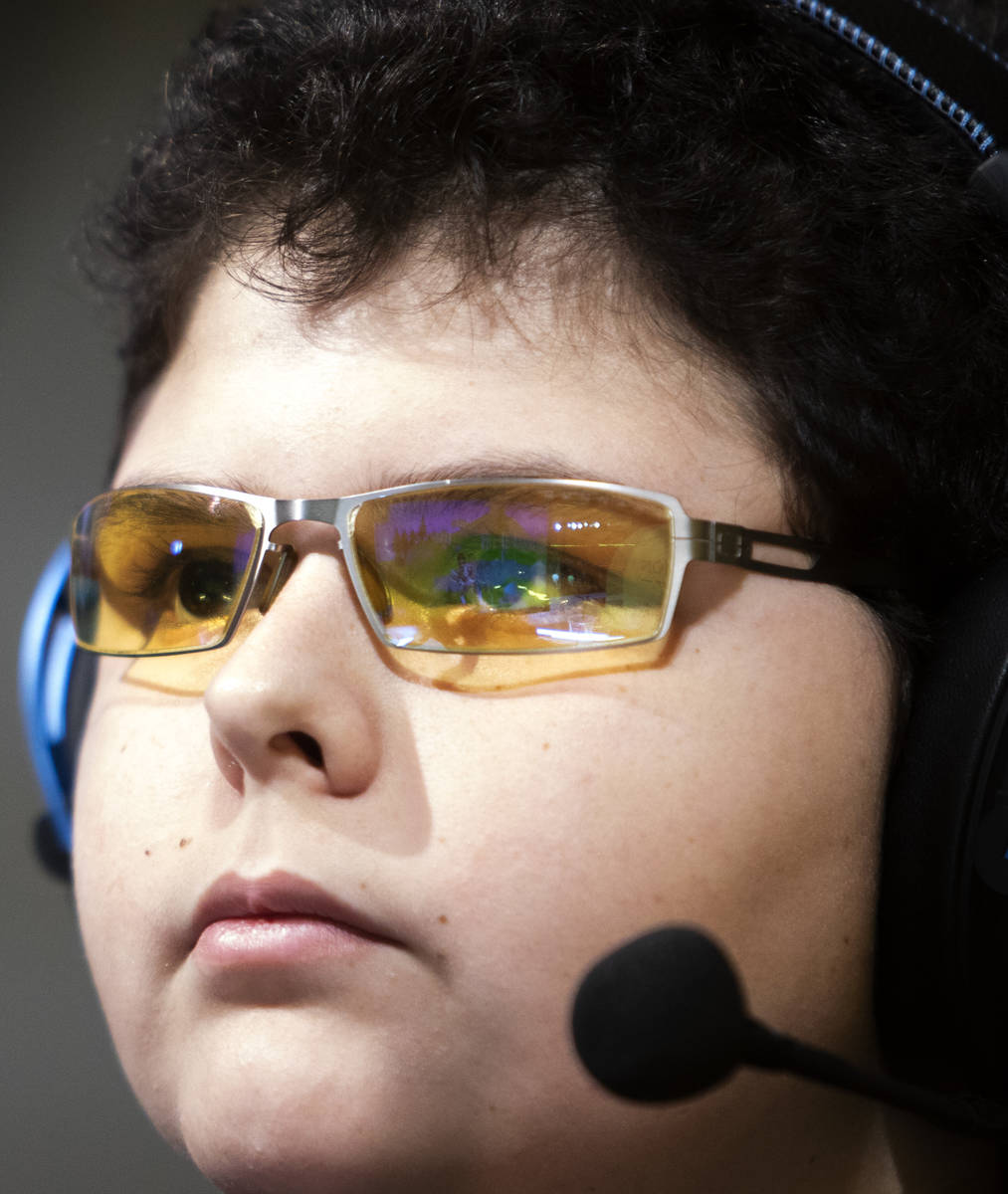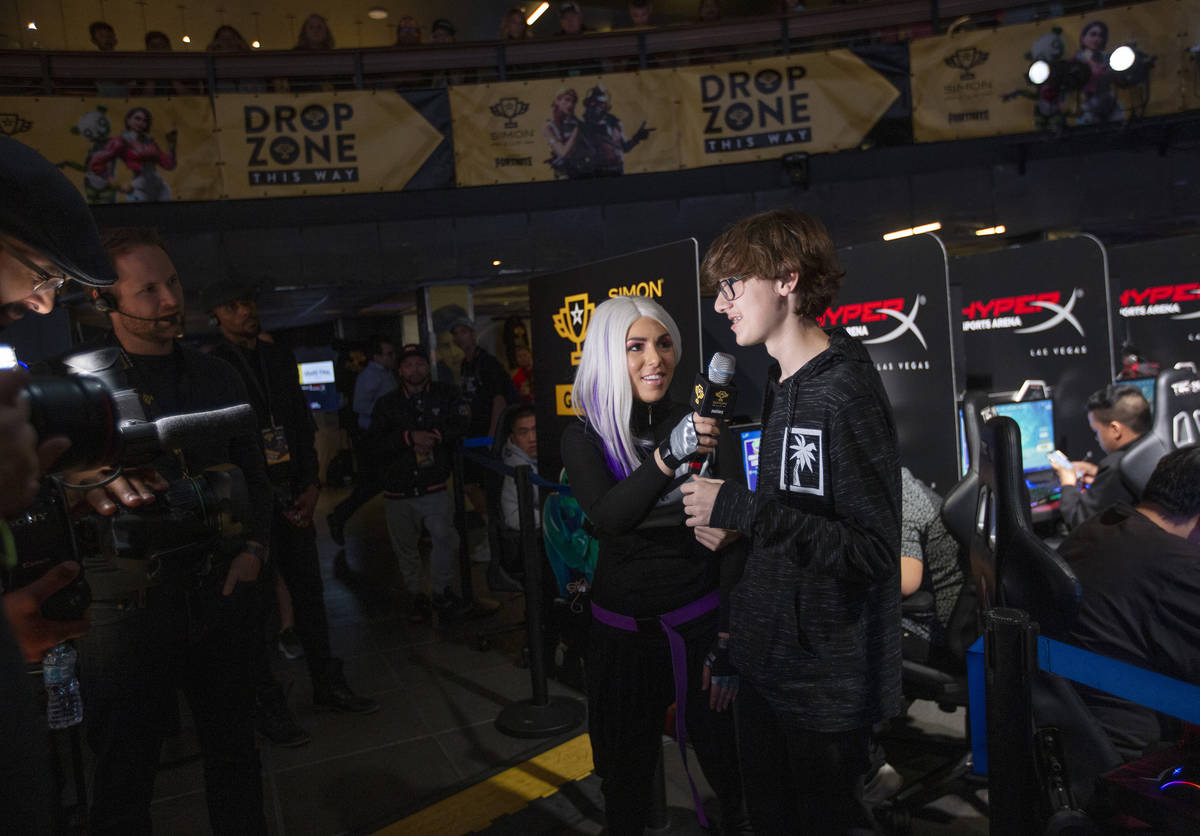Coronavirus devastated gaming industry but may boost esports
The spread of the novel coronavirus has devastated the gaming industry, prompting the shutdown of arenas, casinos and resorts across the country.
But there’s one related that industry experts say has been given a chance to prove its worth during this crisis: esports.
Many say the competitive video gaming industry, expected to boom in Las Vegas years ago, has instead sputtered, with casinos pulling back on their esport offerings. The casino shutdowns might be the perfect time for operators to re-evaluate the potential in esports — a growing industry that still can generate revenue at a time when millions are told to stay at home.
“The world of social distancing is going to continue to have casino operators engage their customers online more and more,” said Seth Schorr, chairman of the Downtown Grand and founder of the Nevada Esports Alliance, a nonprofit promoting Nevada’s development as a global hub for competitive video gaming. “I think esports will continue to be an important part of our strategy (at the Downtown Grand), especially under the new social distancing guidelines.”
Sports betting opportunities
One of esports’ most attractive draws is its ability to merge with Las Vegas’ sports betting industry.
Esports betting already is one of the fastest-growing segments for European online bookmakers, and many major books rank esports among their top 10 sports by volume, according to Eilers &Krejcik analyst Chris Grove.
A 2016 report from the research and consulting firm projected the total amount bet on major esports titles would hit $12.9 billion by 2020, compared with $5.5 billion four years prior.
But esports betting has yet to take off in the U.S., and Las Vegas properties such as The Linq Hotel and Downtown Grand have dialed back their esports offerings in recent years.
“We assumed in the beginning (gamers and bettors) were more closely related than they really are,” said Robert Rippee, director of the Hospitality Lab at UNLV’s International Gaming Institute. “Early attempts to provide a sports betting option (on esports) in Nevada was met with not very good results.”
Grove believes regulatory restrictions and a “lower level of awareness” among U.S. casino executives is to blame.
But a growing number of Nevada sportsbooks have started to turn to esports as leagues such as the NHL and MLB pause their seasons.
Unlike traditional sports, esports betting still is viable amid strict social distancing guidelines. Over the past month, the Nevada Gaming Control Board has allowed the state’s sportsbooks to offer wagers on seven esports events, including League of Legends tournaments.
Unlike traditional sports, “esports are able to capitalize on a digital setting to continue competition,” allowing bookmakers to maintain business, said Brett Abarbanel, a director of research at UNLV’s International Gaming Institute.
That digital setting seems to be attracting bettors already: Online real money gaming saw significant spikes in states last month.
New Jersey reported online betting generated 90 percent — $163.4 million — of the state’s handle in March, while online betting generated 90 percent — or $118.3 million — of Pennsylvania’s March handle. In Indiana, online sportsbooks generated 81 percent — or $60.8 million — of the state’s handle.
The Nevada Gaming Control Board has yet to release its March revenue report.
Rippee expects those reports will push casino operators to explore expanding their esports offerings, which has direct ties to online gaming.
“They have the time to investigate it and see that there’s a strong consumer trend there that they can’t — and shouldn’t — ignore,” he said.
Spokespeople for MGM Resorts International and Caesars Entertainment Corp. — both of which have had offered esports at Las Vegas properties — declined to comment on whether executives were considering expanding those offerings.
Demographics
One of the biggest hurdles for esports’ assimilation into the U.S. gaming industry has been its core demographic.
When the HyperX esports arena opened its doors at the Luxor in 2018, operating company Allied Esports had projected the average player demographic would be a male in his 20s.
Turns out the company overestimated: The average player is 16, too young to buy a drink or play blackjack on the way to the arena.
When asked if esports is a lucrative industry, Abarbanel said, “It depends.”
She said the crowd’s consumption patterns are different than many others. She pointed to one example from a 2018 League of Legends tournament at Mandalay Bay, where she said many of the attendees declined to spend money on nicer restaurants inside the property.
“There were all these reports of people coming back with bags of McDonald’s to eat,” Abarbanel said.
But Rippee said the shutdowns could “undoubtedly” be the perfect opportunity to turn a broader, more affluent demographic toward esports, including gamblers who have been itching to place a bet.
“People are looking to consume competitive entertainment — certainly in a betting environment — and there’s nothing else available,” he said.
While esports could easily be a temporary filler as bettors wait for live sports games to return, Rippee expects many of these new esports fans will stick to it beyond the shutdowns.
“People will discover new games to watch and new levels of competition,” he said. “I think it will still have some stickiness with groups of people.”
Boom yet?
This isn’t the first time experts have noted the potential for esports in Las Vegas.
Schorr said he began pushing for more esports offerings in the property back in 2015, offering cash tournaments and rooms catered to traveling esport teams, with bunk bed sets that could fit up to eight competitive video gamers in a room.
“We always looked at esports as an opportunity to grow,” he said.
Though esports offerings have shifted at the Downtown Grand, Schorr said he’s just as bullish on the industry today as he was five years ago.
“It’s a slow ramp … (but) there is a Las Vegas strategy,” he said. “We’re still figuring it out, alongside the esports industry.”
Abarbanel said the nationwide casino shutdowns could help make esports more promising.
“I would expect that incorporation of esports and video gaming into casino settings will get a refreshed look as gambling establishments reopen following the pandemic,” she said.
Rippee also suspects casino operators are considering innovative ways to reach new markets after the shutdowns end.
“(Casino) demand will build slowly, so competitive advantage will come to those who find those unmet needs in new markets such as esports (and) video gaming fans,” he said.
Stuart Irvin, a lawyer at Covington &Burling LLP and founder of the firm’s esports practice, said there is still an enormous opportunity for the industry in Las Vegas. He said its esports offerings stand apart from other cities because of its transportation hubs, technology infrastructure, positive regulatory regime and local universities.
“I think there’s a tremendous opportunity for Las Vegas to become for esports what Wembley is to soccer,” he said. “It could be a destination location for fans and players. It has all of the tools that could make this a success.”
Abarbanel also holds out hope for the industry’s future in Las Vegas.
“(Las Vegas) jumped into this somewhat early on,” she said. “It’s not that esports is not a success story, it’s more that esports is not a success story yet. It’s taking more time to develop what’s right for this city.”
Contact Bailey Schulz at bschulz@reviewjournal.com or 702-383-0233. Follow @bailey_schulz on Twitter.
Esports regulations in Las Vegas
Esports betting has yet to take off in the U.S.
Eilers & Krejcik analyst Chris Grove believes regulatory restrictions and a "lower level of awareness" among U.S. casino executives is to blame.
Regulations on esports in the U.S. are limited. In Nevada, each individual esports tournament must go through an approval process before bets can be placed.
Scott Burton, the CEO of igaming platform Askott Entertainment, said it's harder to set regulations around esports because it's more fragmented than other games.
While sports like football and hockey already had set rules from their leagues, there are thousands of video game franchises owned by a bevvy of different companies.
"There's still an unknown for the regulatory space around who's organizing these events, who's legitimate, who isn't," Burton said. "They'll have to figure it out game-by-game, event-by-event and see how they can set up the rules."
Jud Hannigan, CEO of Allied Esports, a California-based company that operates the HyperX Esports Arena at the Luxor, has also seen challenges around U.S. esports betting.
"You have the game publishers who may or may not be interested or have an opinion on whether or not they want sports betting activity around their games," he said. "(Then there's) the age of the players. … There's a lot of different issues that need to be worked out for regulators to feel comfortable."
And with many states still focused on kick starting traditional sports betting — there are currently 21 with active sports betting legislation — Burton said it'll take some time before they can turn their attention to esports.
"You'll see it (betting on esports) grow a lot quicker in Asia and other markets. The U.S. is a bit slower just because it's so new," he said.
Jennifer Roberts, a former UNLV adjunct professor, said she began to see more opportunities for esports betting in the U.S. after 2018, when a law was overturned that limited sports betting to Nevada.
"We're still seeing people across the U.S. getting used to having legal sports wagering," she said. "Once that settles, you might see more expansions of different offerings within the sports betting world. I think there's room for it to be accommodated and for it to grow."



